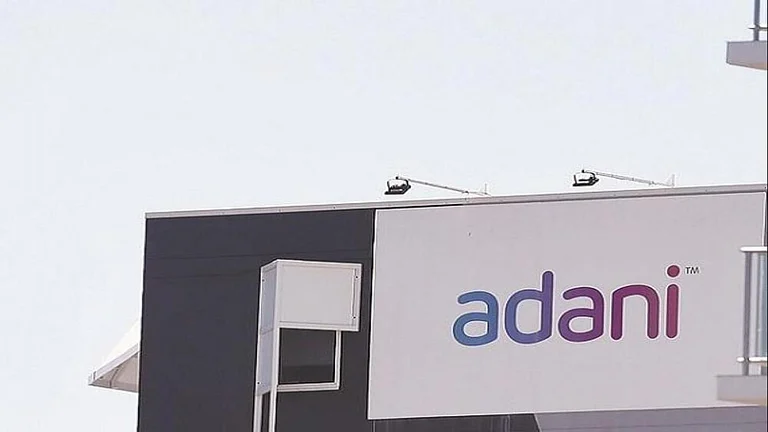Hindenburg Research, the US-based short-seller whose reports led to massive wealth losses for Indian conglomerate Adani Group in 2023, has decided to shut shop, its founder Nathan Anderson said on January 15.
In a note on Hindenburg Research's website, Anderson wrote, "The plan has been to wind up after we finished the pipeline of ideas we were working on. And as of the last Ponzi cases we just completed and are sharing with regulators, that day is today."
Founded in 2017, Hindenburg claims to have exposed several business and securities fraud cases via its reports. Anderson, in his note, said, "Nearly 100 individuals have been charged civilly or criminally by regulators, at least in part through our work, including billionaires and oligarchs."
Works of Hindenburg Research
Hindenburg Research takes its name from a high-profile German airship that ended in disaster in 1937. Hindenburg claims its aim is to find "man-made disasters" in markets and in doing so benefit by taking a short position against the company's shares.
Short-selling involves borrowing shares of a company that you expect will fall. The borrower sells these shares at the current market price and later repurchases them at a lower price, profiting from the difference.
While the firm says it uses its own money to take short positions, according to a 2021 New York Times report, "about 10 deep-pocketed investors bankroll" some of Hindenburg's operations and some also take short positions when Hindenburg publishes a report against a firm.
The short seller is led by stock researcher Nathan Anderson, who holds a degree in international business from the University of Connecticut. He started his career in finance at data company FactSet Research Systems and later set up his own brokerage firm, which provided due diligence services to hedge funds. However, Anderson told the NYT in an interview that his passion was in finding "scams," so from 2014, he started publishing reports of irregularities against some US-based hedge funds. In August 2017, he set up Hindenburg Research.
"Giant Killer" Hindenburg Research
In India, Hindenburg Research came into the limelight after publishing its report against the Gautam Adani-led port-to-power conglomerate. However, the short seller's first target was also an Indian firm, media firm Eros International. Hindenburg Research's first two reports were against Eros, then US-listed, alleging major accounting irregularities, asset inflation, and falsified revenue, among other issues.
In 2023, Eros International was delisted from the NYSE, and last year, Sebi fined Eros promoter Sunil Lulla for "siphoning of funds and manipulation of books of accounts."
The short seller gained global attention after targeting US electric truck maker Nikola in 2020. Hindenburg's report against Nikola led to a massive stock selloff, and its founder, Trevor Milton, was sentenced to four years in prison on charges of securities and wire fraud.
In 2022, Hindenburg also took a short position against Elon Musk over his $44 billion offer to buy Twitter, claiming that the deal would be repriced lower. However, Anderson later disclosed his "significant long position."
Hindenburg also targeted fintech firm EbixCash, American businessman Carl Icahn and Lordstown Motors, among others. The short seller uses detailed reports that include public records, inputs from company employees, and internal corporate documents. Hindenburg employs a mix of former journalists from Bloomberg and analysts to draw up its reports. Before targeting Indian conglomerate Adani Group in 2023, Hindenburg flagged wrongdoing in at least 16 companies.
The Adani Saga
The most notorious report by Hindenburg Research was against India's Adani Group, released in January 2025, just as it was planning to raise $2.5 billion from a secondary share sale. Hindenburg accused the port-to-power conglomerate of illegally using offshore tax havens, stock price manipulation, and raised concerns about its high debt. While the Adani Group repeatedly denied all charges, the aftershock led to a stock rout that wiped out about $100 billion from its combined wealth. This also led to Gautam Adani losing the title of Asia's richest man.
Later, the Indian Supreme Court rejected petitions asking for a special investigation into the group's businesses and asked the market regulator Sebi to continue with its probe related to the Adani firms. Last year, Hindenburg came out with another report, this time targeting Sebi itself. Hindenburg accused Sebi chief Madhabi Puri Buch of having links to offshore funds allegedly used by the Adani Group. Both Buch and the Adanis denied any wrongdoing; however, it did stir up a political storm in India.
Last November, the US Justice Department and market regulator SEC announced that Gautam Adani and others linked to his group had been indicted in New York over his alleged role in a multibillion-dollar bribery and fraud scheme.
Why Hindenburg Research is Shutting Down
In a 2021 profile by the NYT, Nathan Anderson, the founder of Hindenburg Research, was called a "giant killer." His short-selling firm has tried to justify this name by targeting some of the biggest corporates. After Adani, they went after Jack Dorsey-led Block, AI server maker Super Micro Computer, African fintech conglomerate Tingo Group, and American investment firm Wags Capital.
Anderson says his work has been "rather intense, and at times, all-encompassing."
"I often wake up from my dreams because I've thought of a new investigative thread to pull on in my sleep, or an edit that clarifies a point I didn't realize I was troubled by during the day" he wrote in his final note on January 15.
Anderson claims there is no particular reason for disbanding his 11-member team at Hindenburg Research, but rather it's just "a chapter" of his life that has come to a close.
































